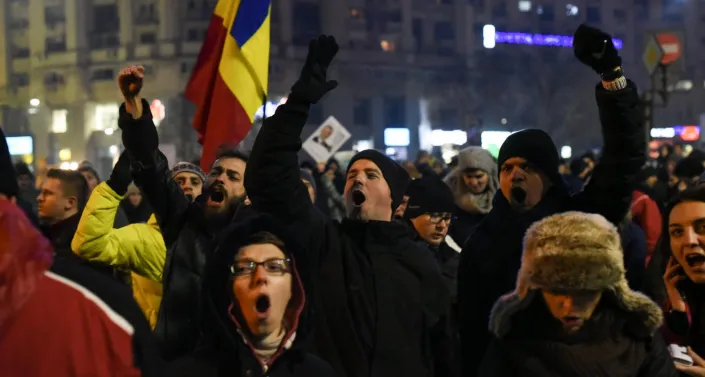
Romania
Romania ranks 53rd in the 2023 RSF Press Freedom Index. Civil liberties are generally respected but have come under growing pressure as entrenched political interests push back against civic and institutional efforts to combat systemic corruption. The government’s view on journalism and freedom of expression encourages censorship and self-censorship instead of fighting it.
In Romania, the mechanisms for funding the media are in many cases corrupt, and editorial policies are subordinated to the interests of owners, who often use them as propaganda tools. At the same time, information about who owns the media is hidden from the public.
Growing restrictions for the media
During the Covid-19 crisis, a lack of transparency and poor communication between officials and the media undermines access to information and media credibility. Government officials delayed or blocked information about medical supplies and other spendings that were supposed to address the pandemic’s effects. The government announced a controversial policy aimed at banning online platforms promoting fake news and conspiracy theories, however, in practice, this strengthened the position of the denialists.
In order to combat disinformation and support the media sector, the government earmarked 40 million euros for media public information and awareness campaigns. But the initiative was widely criticised because of a lack of transparency and qualitative criteria with regard to the allocation of funding, which ended up favouring a number of media outlets with a reputation for ethical lapses, and encouraging self-censorship.
Fighting against party interests
Discrimination against minorities and other vulnerable groups is a long-standing issue, as is control of key media outlets by businessmen with political interests. In Free Press Unlimited’s publication ‘Independent journalism in contexts of shrinking civic space’, the case of Átlátszo Erdély, the Hungarian-language media outlet, is highlighted. This Cluj-Napoca based medium has to survive in a media landscape dominated by party interests, which has resulted in various challenges, particularly when it comes to cooperation with the Romanian public media. The study points to how to invest in community engagement and build relations with audiences, producing relevant (local) stories based on the information that they would otherwise not have access to.The challenge of independent media remains the engagement with an often divided community.
Free Press Unlimited’s projects
For local journalists in Central Europe, Free Press Unlimited provides courses about cross-border journalism, sharing Free Press Unlimited’s knowledge in creating, and producing transborder journalistic stories content as well as content distribution with cross-border audiences. To develop their skills Free Press Unlimited also provides mentoring opportunities in content production.

